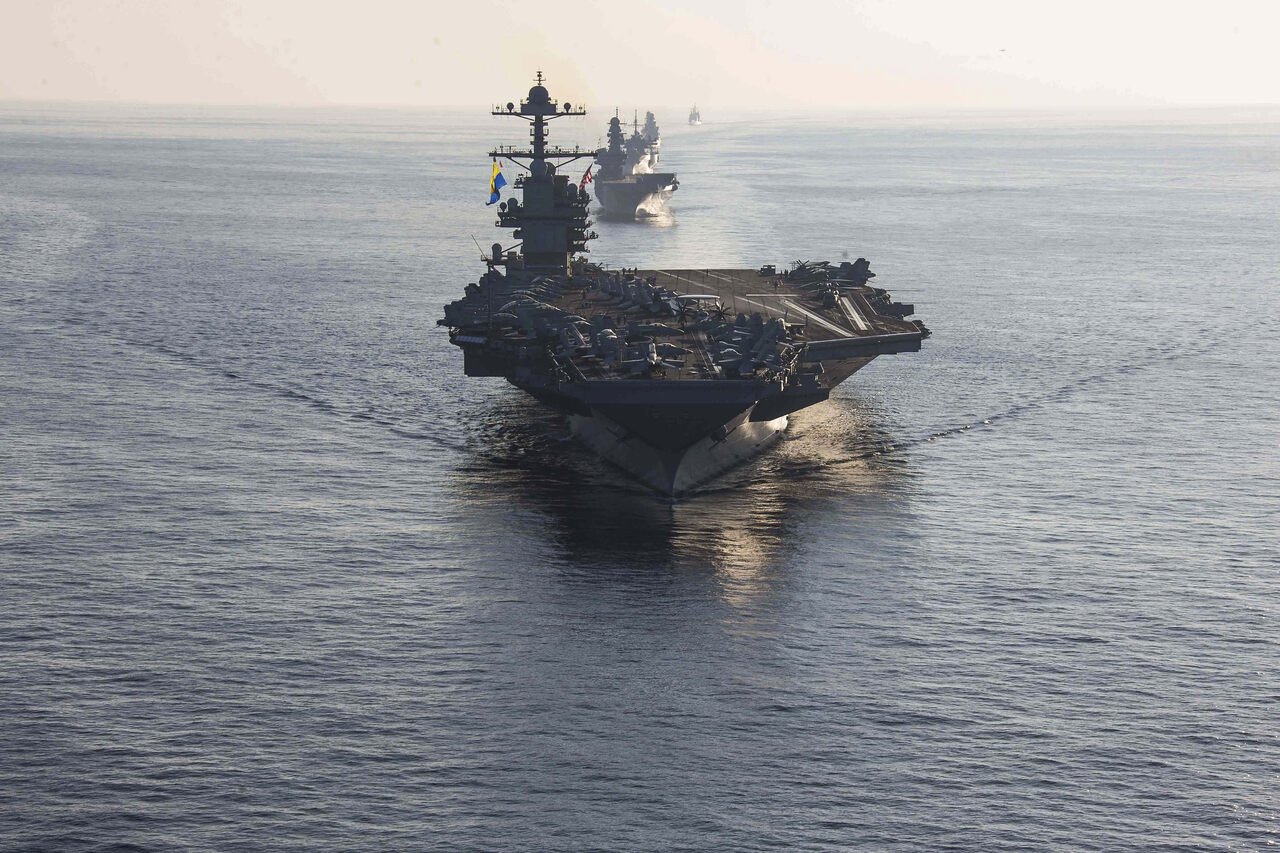Russia Sees Opportunity in Israel-Hamas War
Russia has not condemned the Hamas terrorist attacks on Israel but has offered mediation in the ongoing conflict. Instead of condemnation, the Russian authorities accused the U.S. of provoking conflict in the Middle East. Russia, however, is the state seeking to destabilise the region in order to deflect interest and military support away from Ukraine, especially that of the United States.
 OOL / Reuters / Forum
OOL / Reuters / Forum
What has been Russia’s reaction to the Hamas attack?
Russia has not condemned the attack and rejected allegations that it inspired Hamas’ actions against Israel. Instead, the Russian government accused the U.S. of fomenting regional conflicts and criticised American Middle East policy, which the Russians say is based on unilateral support for Israel. Vladimir Putin blamed the United States for dominating the Israeli-Palestinian peace process, adding that the war was a failure of U.S. diplomacy to take into account the situation of the Palestinian people. Putin also accused Israel of forced settlements in the Palestinian territories. Russian Foreign Ministry spokeswoman Maria Zakharova called for an immediate ceasefire. In turn, Russian pro-Kremlin media justified Hamas’ actions and reinforced the Russian government’s message of Western double standards in the context of Israel’s attacks in Gaza.
Why has Russia offered mediation and what negotiating capacity does it have?
Putin has offered Russia to join in the settlement of the Israeli-Palestinian conflict. Its aim is to undermine the leading role of the U.S. in the peace talks between Israel and Palestine. Putin has already held talks with Israeli Prime Minister Benjamin Netanyahu, Palestinian President Mahmoud Abbas, as well as the presidents of Egypt and Iran, and the Syrian leader. However, Russia is limited in its ability to act as a mediator in the talks, as it will increasingly side with Palestine as the regional conflict escalates. The Russian government has called for the creation of a sovereign Palestinian state, which is incompatible with Israel’s interests, while viewing the conflict as an area of competition with the U.S. Hamas representatives have spoken positively about Russia’s position and argue that they are in constant contact with the Russian authorities regarding Israeli prisoners of war who have dual Russian citizenship.
Will there be a change in Russia’s policy towards the Middle East?
With the ongoing war in Ukraine, Russia is interested in destabilising the Middle East in order to take international attention away from the Ukrainian front. Given its military involvement in Ukraine, there is no indication that it significantly contributed to the attack, and it has limited power to influence the situation in the Middle East. If the war strengthens Israeli-U.S. cooperation, it has forced Russia to side with the Arab states. This is a change in its previous policy, as Russia has maintained correct relations with all states and non-state groups in the Middle East, including Hamas and Lebanon’s Hezbollah. Since Russian interference in Syria in 2015, Israel has taken Russia’s security interests into account, which is why it has long refrained from supporting Ukraine militarily after its invasion of Ukraine.
Could destabilisation in the Middle East affect Russia’s war against Ukraine?
Russia is counting on the potential for destabilisation in the Middle East to weaken Western resolve and support, especially that of the U.S., in defending Ukraine. A reduction in Western arms supplies to the Ukrainian front would allow the Russian side to take the operational advantage. Russian territorial gains would improve Russia’s negotiating position vis-à-vis the Ukrainian authorities and also help Putin consolidate his position ahead of the presidential elections due in March 2024. At the same time, Russian propaganda highlights supposed double standards of behaviour on the part of the EU and the U.S., which are allegedly silent on the deaths of Palestinian civilians. This will make it even more difficult for Ukraine to garner support in its war against Russia in the countries of the Global South, which includes the Middle East.





